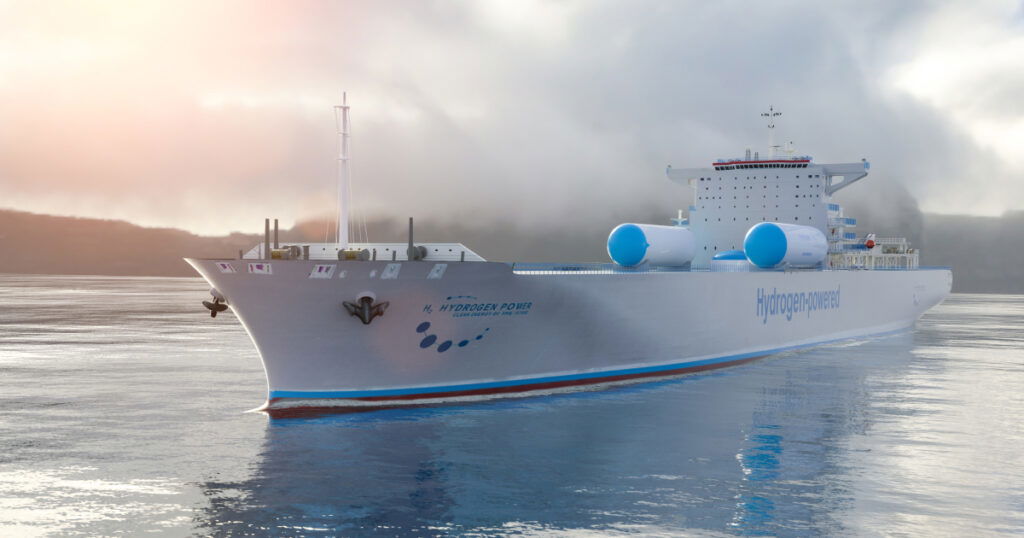
Global warming is speeding up, and so is climate change, which is a threat not just to humans but to every creature living on this planet. With rapid industrialisation, more pollution is being generated. It is leading to irreversible damage to our environment at an alarming rate and needs our immediate attention.
Seaborne trade contributes about 2.5% of global emissions, annually, which is equal to those generated by Germany in a year, and this is a cause for concern and requires amendments in policies to make the maritime sector shift toward green technology. Here is how taking baby steps in the maritime sector can save the Earth and reduce carbon footprint.
Renewable Energy
Researchers and climate activists have been stressing switching to eco-friendly means of energy consumption for ages now. Solar energy, wind energy, and hydro energy are present in abundance, but they are not being used judiciously.
With the advancement in technology, coupled with research, ships can be re-engineered so that their dependency on fuels is brought down. While they are on the run, mini turbines installed in the lower region of the ship could produce hydroelectricity. The design of these new age ships would be such that these turbines would come out only when a ship was in the water.
On the ship, mini wind turbines could be installed, which would serve as a great source of energy production. With the movement of a ship, the air pressure would help these wind turbines produce electricity. Similarly, solar panels could be installed, to produce electricity when the ship is moored, and the wind and water turbines have stopped working.
Redesigning ships, managing space for installation of solar panels or turbines, and research might all cost a bomb, but it will go a long way in cutting down carbon emission to help clean up nature.
Digitalising Port Operations
The shipping business never comes to a halt, and it is imperative to digitalise human efforts, for more efficient and streamlined operations. Once the ship reaches a port and the cargo has to be loaded or unloaded, electric cranes and carrier trucks that run on solar energy could be used.
Automating terminals would not only reduce the consumption of fuels but would also increase human efficiency and accuracy. The chances of errors and accidents are reduced when high-end technology is deployed during the transfer of cargo to and from terminals. In addition, less time is taken, which helps to bring down the cost to operate.
Another step that favours decarbonisation is cutting down on the usage of paper. A lot of paperwork could simply be moved to emails and spreadsheets. Making paper obsolete and leveraging technology would help in the better organisation of important documents and save human effort. Digitalising all paperwork and exchanging data through an electronic medium can also help shipping companies keep data centrally. This would lead to transparency and quick and easy access to required files.
For example, instead of maintaining logbooks, spreadsheets would be more efficient to manage. The employees deployed on the ports could carry tablets for quick access to all the data when a ship arrives or departs. Instead of manual signatures, fingerprints or digital signatures could be used for confirmation of authority and for quick approvals.
Switching to a Sustainable Lifestyle
Reducing a product’s carbon footprint is the simplest way to break the chain of environmental pollution. This simply means finding alternatives to non-renewable products such as plastic. The workforce on ships and on land could be encouraged to reduce their consumption of one-time-use plastic products. For example, steel or copper or glass bottles could be used regularly, and dependency on packaged water bottles could be discouraged.
For the workforce on the ship, edibles could be arranged in bulk to cut down on plastic waste. The daily use items, from a simple toothbrush to plates and glasses, could be replaced with products made with bamboo. Collaborating with food suppliers to provide edibles in safe, biodegradable, or recyclable packaging could be a game-changer for not just the maritime but the food and beverage industry as well. Similarly, the maritime industry can collaborate with several other industries and chalk out ways to cut down the demand for non-biodegradable items, to accelerate decarbonisation. It is not a one-person job or an overnight process to bring about large-scale change. Taking one step at a time, improvising one operation at one time, and collaborating with other industries are the keys to successfully limiting carbon emission.
 2nd Officer Nikhil Sidhu – “Dee4 Cedar”
2nd Officer Nikhil Sidhu – “Dee4 Cedar”



